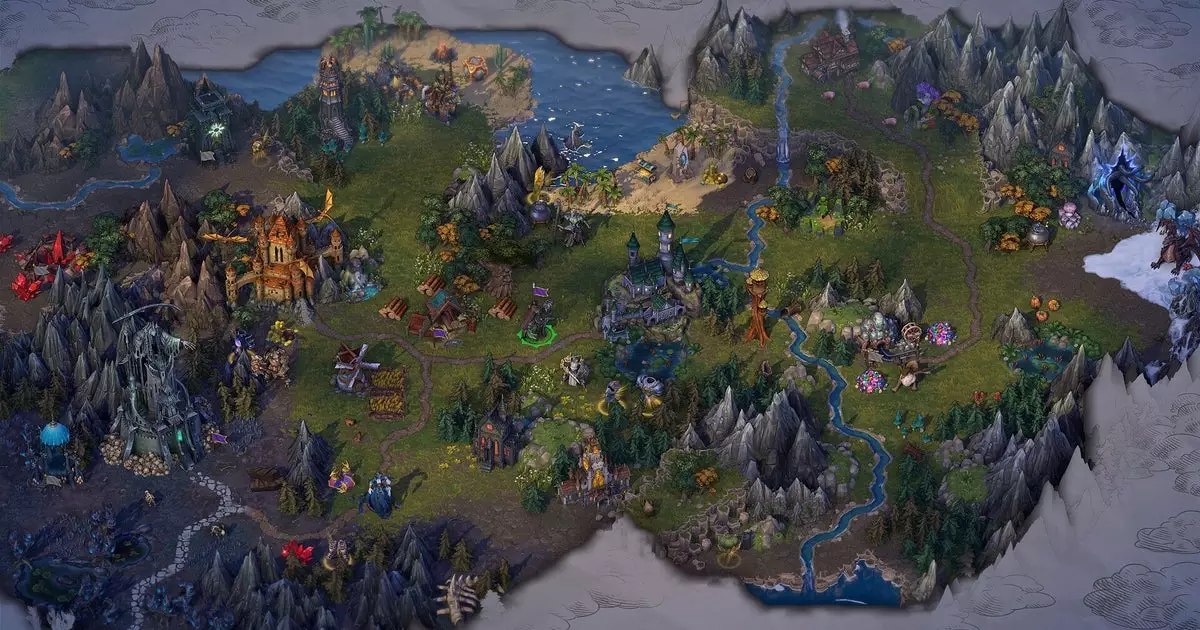In a move that’s both surprising and revealing of larger industry trends, Ubisoft has chosen to delegate the publishing duties of their long-standing franchise, Heroes of Might and Magic: Olden Era, to Hooded Horse, an indie publisher known for strategy titles like Manor Lords and Norland. This decision raises eyebrows, especially considering Ubisoft’s status as a gaming giant with the resources to handle such endeavors internally. The question persists: what motivated this shift? A superficial answer suggests financial considerations—perhaps cost-cutting or reallocating resources—yet beneath the surface lies a complex web of corporate strategy, market dynamics, and branding concerns.
By entrusting Hooded Horse with the publishing side, Ubisoft is likely attempting to offload certain risks and costs associated with marketing and regional distribution. This move reflects a broader industry trend where large publishers increasingly collaborate with specialized, often smaller, partners to maximize efficiency and reach. However, given Ubisoft’s expansive infrastructure, one might question whether such outsourcing is purely a financial expedient or if it hints at some internal strategic recalibration. Does Ubisoft see the franchise as less central to their core portfolio? Or are they deliberately positioning it for niche revival through a publisher intimately connected with community-centered strategy audiences?
Strategic Partnerships: A Practical Yet Cryptic Approach
The partnership with Hooded Horse isn’t merely a logistical arrangement; it embodies a nuanced positioning in the competitive landscape of game publishing. Alain Corre, Ubisoft’s chief publishing officer, lauds Hooded Horse’s passion and community connections, implying that the smaller publisher’s specialization in strategy titles could provide a tailored platform for Heroes of Might and Magic’s revival. Meanwhile, Tim Bender’s Hooded Horse emphasizes their role in taking full operational control of marketing and distribution, while Ubisoft retains ownership of the intellectual property.
This layered collaboration hints at a broader industry strategy where sizeable publishers maintain ownership of treasured IPs yet leverage niche partners’ expertise to amplify their market presence. It’s a pragmatic approach—outsource the complex, emotionally driven task of community engagement and regional marketing—to players who are deeply embedded in those spheres. Still, it’s hard not to wonder about the implications: does this signify a waning confidence in Ubisoft’s internal publishing arms? Or perhaps a recognition that certain franchises are better handled by specialized entities with established communities and targeted outreach?
Implications for the Future of Gaming Franchises
Ubisoft’s internal fragmentation—splitting into different entities and reallocating a core franchise—mirrors a broader upheaval within the gaming industry. The company’s strategic divestments, delays, and cost-containment measures reveal an organization in flux, re-evaluating where and how to invest. The decision to partner with Hooded Horse could well be a cost-saving maneuver, but it also might serve as a testing ground for new publishing models that could reshape industry standards.
Meanwhile, Unfrozen’s role as developer alongside Hooded Horse’s stewardship underscores the shifting landscape where creative studios have to navigate beneath the umbrella of external publishers, often with less direct support from their parent. Herein lies a paradox: larger companies are consolidating control while simultaneously outsourcing critical elements, perhaps because they recognize their strengths lie in development, not in marketing or regional distribution.
The delayed release of Heroes of Might and Magic: Olden Era, with its nostalgic return to the series’ roots, embodies the cautious optimism of a franchise seeking revitalization amidst changing industry dynamics. Whether this strategy will succeed depends largely on Hooded Horse’s capabilities and Ubisoft’s willingness to let go of the reins—an act that could either breathe new life into Heroes or diminish its legacy if mishandled.
In an era where publishers appear increasingly risk-averse, the enduring lesson might be that adaptability and strategic alliances are more vital than ever. The game of corporate chess here is subtle: the true winners will be those who can balance control with collaboration, innovation with tradition—and ultimately deliver compelling experiences to diverse audiences across the globe.

